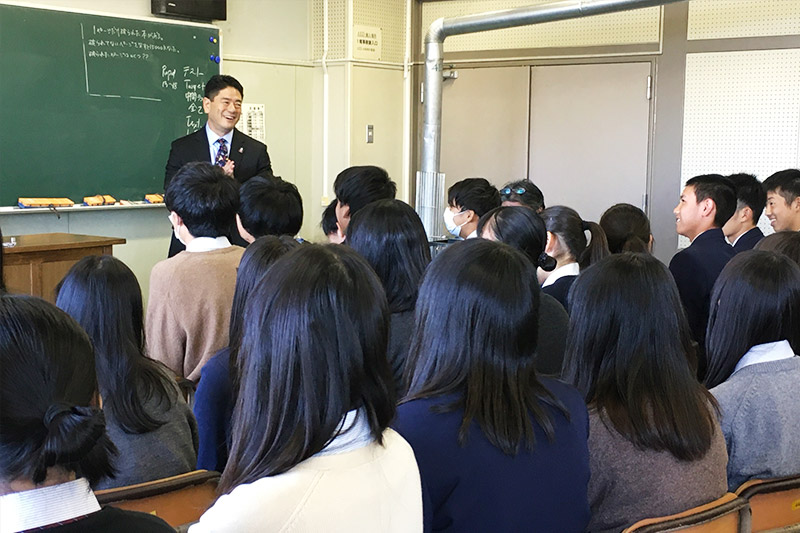Sharing Japanese American History in Japan (Los Angeles, CA)
- When
– - Where
Japan House
Los Angeles , California
Google map and directions
On Wednesday, February 12, JAPAN HOUSE Los Angeles will host a special presentation featuring Mitchell Maki (JALD ’02), who will speak on his recent trip to Japan sponsored by the Government of Japan. After Dr. Maki’s presentation, USJC Board Member Yuko Kaifu (President of JAPAN HOUSE Los Angeles) will join him for a discussion, followed by Q&A. More event details can be found here.
Sharing Japanese American History in Japan
Date: Wednesday, February 12
Venue: JAPAN HOUSE Los Angeles
Time: Doors Open – 6:30pm
Presentation – 7pm
Reception to Follow
In this special talk co-presented by the Consulate General of Japan in Los Angeles and JAPAN HOUSE, Dr. Mitchell T. Maki will reflect on his recent experience sharing Japanese American history in Japan, where he traveled as an official government guest. Dr. Maki made presentations at respected academic institutions as well as traveling to Hiroshima and his ancestral home of Yamaguchi Prefecture. He’ll describe how his research and perspective was shaped by this trip, and how it reconnected him to his dual heritage – rooted in America as much as Japan.
“This visit reminded me of how American I am. At the same time it awakened the parts of my being that are Japanese. To me, Tokyo, Yamaguchi, and Hiroshima used to be places on a map. Now, they are places in my soul.”
Mitchell T. Maki

Mitchell T. Maki, Ph.D. is a nationally recognized leader in the Japanese American community and one of the leading scholars of the Japanese American redress movement. He is the lead author of the award-winning book, Achieving the Impossible Dream: How Japanese Americans Obtained Redress, a detailed case study of the passage of the 1988 Civil Liberties Act. He has served on the Board of Governors and Scholarly Advisory Councils of the Japanese American National Museum and Go For Broke National Education Center. He is a sought-after presenter on issues ranging from the Japanese American Redress movement to contemporary community issues.
